Are you ready to jump into the world of investing? Are you already investing but looking to improve your knowledge on the subject and, in turn, improve the performance of your investment decisions?
Look online for investing advice, and you will be hit with a mountain of tips and tricks.
There are investing books, blogs, forums, and social media groups that all make various promises about investing. Of course, you only have limited time to spend on learning and research.
If you tried to read every resource out there, then you would spend the rest of your life reading and no time actually investing. There’s also the question of which resources actually benefit the reader and which ones are get-rich-quick schemes wrapped up in a different package.
Spending your time reading the wrong resources could have similar effects to not research at all.
We want to help you wade through the glitzy promises, the stylish covers, and the marketing lingo to find the best investing books you can dive into now.
The following list of top 10 best investing books will give you a great starting point no matter how experienced an investor you may be.
1. The Financial Diet: A Total Beginner's Guide to Getting Good with Money by Chelsea Fagan
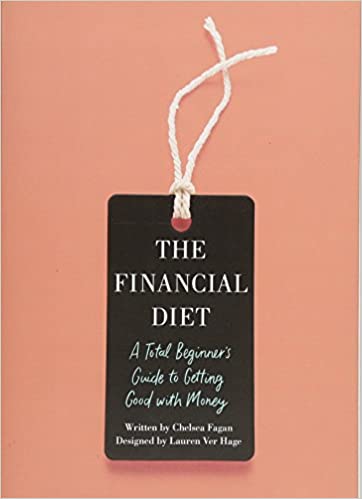 An Indie Personal Finance Bestseller, “The Financial Diet†is a great starting point for millennials who need a crash course on managing their finances.
An Indie Personal Finance Bestseller, “The Financial Diet†is a great starting point for millennials who need a crash course on managing their finances.
The Financial Diet gives you tools to make a budget, understand investments, and deal with your credit.Â
It focuses on creating and adhering to a budget, tips for having those awkward money conversations with friends, and even what ingredients to keep stocked in your kitchen (since eating out is a major budget killer).
It also hits on more advanced finance topics, like how to care for your house or get started with investing.
Author Chelsea Fagan founded the popular website and YouTube channel, The Financial Diet. So The Financial Diet gives you the tools to negotiate a raise and the perfect cocktail recipe to celebrate your new salary.
Â
2. The Essays of Warren Buffett
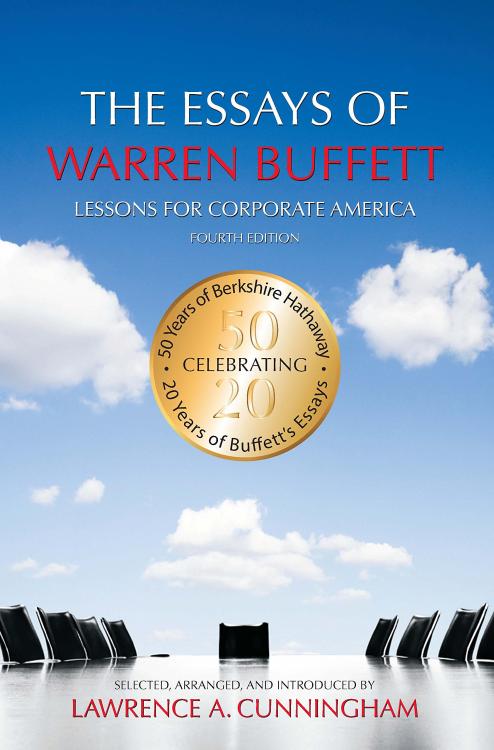 Do you want to learn about investing? Why not learn from the best investor there is. Warren Buffett is such a figure in the investing community that his actions can change how the market behaves in the blink of an eye.
Do you want to learn about investing? Why not learn from the best investor there is. Warren Buffett is such a figure in the investing community that his actions can change how the market behaves in the blink of an eye.
The story of Warren Buffett and his massive conglomerate, Berkshire Hathaway, is nothing short of incredible. The company actually began as two companies, both cotton mills. In the 1960s, Warren Buffett took control of Berkshire Hathaway as it struggled to remain relevant. Since then, he has invested in businesses like Geico, Coca-Cola, and Apple.
In the 1980s, investors could buy Berkshire Hathaway shares for $275. Today, a single Class A Berkshire Hathaway share trades for over $300,000. There is, quite simply, no comparison to the great mind of Warren Buffett.
Getting a glimpse into the investing style of Warren Buffett is a great place for any investor to begin their education journey. See what Buffett looks for when seeking to invest in a company and the thought process that goes into all of his investment decisions.
3. The Intelligent Investor by Benjamin Graham
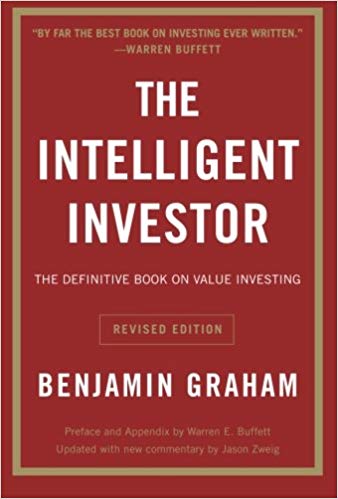 The Intelligent Investor is recommended by people like Warren Buffett and Joel Greenblatt, who, as you have noticed, are also featured on this list. That kind of praise alone makes this one of the best investing books you can read.
The Intelligent Investor is recommended by people like Warren Buffett and Joel Greenblatt, who, as you have noticed, are also featured on this list. That kind of praise alone makes this one of the best investing books you can read.
When reading The Intelligent Investor, you may notice a lack of excitement building inside you about investing. This is somewhat by design. Benjamin Graham did not write this book to convince people they could make millions in the stock market. Rather, he educates readers on how to research companies and invest for the long term.
Over the years, The Intelligent Investor has been revised several times. Warren Buffett says that chapters 8 and chapter 20 are the basis of his investing philosophy. Many other top investors continue to recommend this book today, which is a testament to the quality advice that Benjamin Graham originally published in the 1940s.
Â
4. A Random Walk Down Wall Street by Burton Malkiel
This is another great book for beginners ready to dip their feet into investing but may be turned off by the phrases and concepts that seem almost foreign.
A Random Walk Down Wall Street puts investing concepts in relatable terms. The chances are that you are simply looking for a way to build for your future through investing.
With a million copies sold, Burton G. Malkiel’s “A Random Walk Down Wall Street†continues to be at the top of reading lists for investors—and with good reason.
This book educates readers about how to avoid the schemes and ridiculous sales pitches with basic investing literacy.
After reading A Random Walk Down Wall Street, you should understand investing concepts more clearly and better grasp your own investing goals.
Most importantly, you will understand the path that takes you from your first investment to a successful retirement.
5. The Little Book of Value Investing by Christopher H. Browne
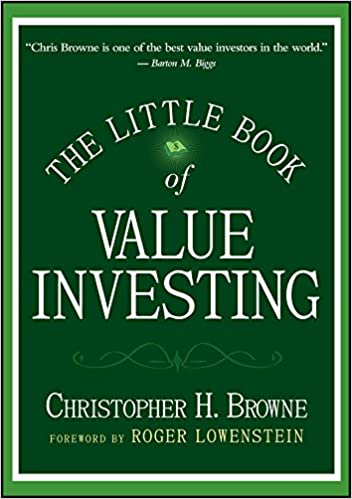 There are many ways to make money in today’s market, but the one strategy that has truly proven itself over the years is value investing. Now, with The Little Book of Value Investing, Christopher Browne shows you how to use this wealth-building strategy to buy bargain stocks around the world successfully.
There are many ways to make money in today’s market, but the one strategy that has truly proven itself over the years is value investing. Now, with The Little Book of Value Investing, Christopher Browne shows you how to use this wealth-building strategy to buy bargain stocks around the world successfully.
Value investing is the practice of purchasing stocks that are undervalued and holding them for longer periods of time, ideally earning returns when those stocks rebound.
Though not a new concept, it’s an undervalued one for many investors (pun intended).
Christopher Browne’s “The Little Book of Value Investing†shows readers how to put this strategy into action to purchase bargain stocks and grow your portfolio.
This title has earned glowing reviews from The Independent, Financial Times (U.K.), Bloomberg, and The Wall Street Journal.
Â
6. The Little Book of Common Sense Investing: The Only Way to Guarantee Your Fair Share of Stock Market Returns by John C. Bogle
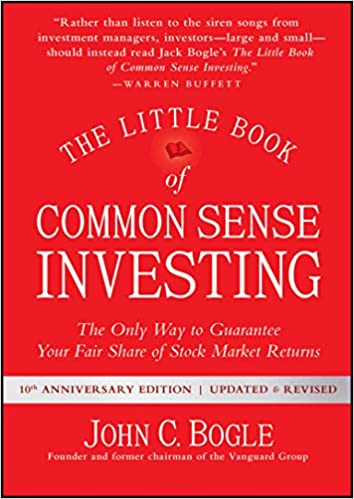 Too many people think that they can outsmart the market or other investors. They make risky investments, lose money, and are turned off the idea of investing forever.
Too many people think that they can outsmart the market or other investors. They make risky investments, lose money, and are turned off the idea of investing forever.
In this book, John Bogle covers common sense investment strategies to help people build wealth in the stock market.
None of the tactics outlined in this book are sexy. Nothing will make you 1000% profit year over year. Instead, reading The Little Book of Common Sense Investing will keep you grounded and focused on realistic investment goals. Building wealth through investing can be done, but it takes time and good decision-making skills.
If you fear investing because you could lose your savings, then this book should appeal to you. After reading John Bogle’s book, you should feel confident that smart investing is the best way to build wealth for yourself and your family.
7. Rich Dad Poor Dad by Robert Kiyosaki
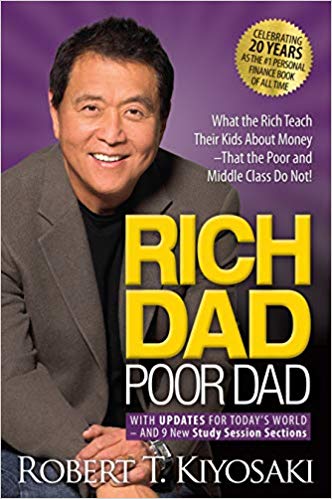 The first book on our list isn’t just about investing and, yet, it may be one of the best investing books you can read. Beginners should take a special interest in Rich Dad Poor Dad.
The first book on our list isn’t just about investing and, yet, it may be one of the best investing books you can read. Beginners should take a special interest in Rich Dad Poor Dad.
Robert Kiyosaki outlines the importance of financial literacy, saving, and investing. He emphasizes throughout the book the concept of paying yourself first.
Essentially, he believes that people should always dedicate money to saving or investing, even if the amount seems small and insignificant.
In the book, Robert Kiyosaki gives a unique, personal look at many investing concepts widely regarded as smart investing strategies. For example, “pay yourself first†is basically another way of explaining dollar-cost averaging.
By reading this book, you will learn more about investing concepts, personal finance topics, and how someone could build a successful life for their family by using these simple, easy-to-digest ideas.
8. The Little Book That Beats the Market by Joel Greenblatt
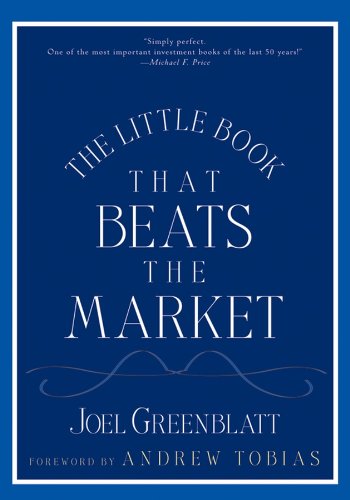 At the beginning of this article, we promised no glitzy sales pitches with ridiculous promises. So a book with this title would seem out of place on our sensible list, wouldn’t it?
At the beginning of this article, we promised no glitzy sales pitches with ridiculous promises. So a book with this title would seem out of place on our sensible list, wouldn’t it?
While the title may seem flashy like a bag of magic beans, Joel Greenblatt provides a straightforward formula for identifying companies that have outperformed the market for years.
Not only can investors learn how to identify the companies that will earn them sizeable returns, but the formula for building their portfolio is clearly laid out.
To put things simply, Joel Greenblatt advocates buying strong companies with good performance at an affordable price. That seems like a no-brainer, right? The art is in identifying these companies and the strategy as a whole.
The title of this book may seem like the contents within are too good to be true. As they say, never judge a book by its cover.
9. The Millionaire Next Door by Thomas Stanley
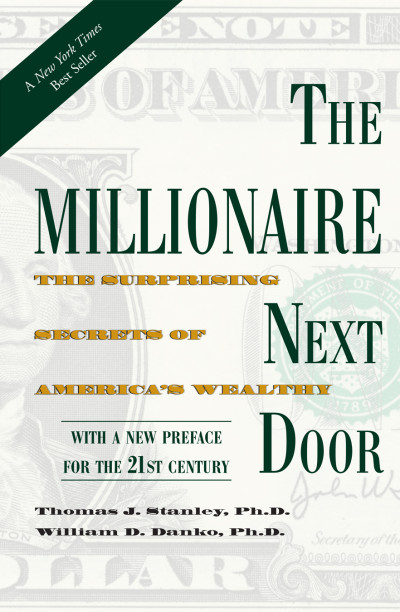 When you think of wealth accumulation, you likely think of incredibly wealthy people flying on private jets and vacationing on their luxury yachts. The truth is that middle-class families are the best at accumulating wealth, according to this book.
When you think of wealth accumulation, you likely think of incredibly wealthy people flying on private jets and vacationing on their luxury yachts. The truth is that middle-class families are the best at accumulating wealth, according to this book.
Like Rich Dad Poor Dad, The Millionaire Next Door covers a lot of topics beyond just investing. Personal finance is a major focus of the book, along with investing and strategies that help people accumulate wealth faster than their peers who may live in similar situations, work similar jobs, and have similar backgrounds.
Much of the book discusses how small decisions can have major impacts down the road. For example, the author discusses the opportunity cost of smoking a pack of cigarettes per day instead of investing that money.
There are some legitimate criticisms of the book. The author assumes that people would invest wisely instead of spending money on habits like smoking or drinking. In addition, many believe that the author conveniently ignores those in the middle class who have attempted to accumulate wealth and failed.
Even with those criticisms in mind, the concepts put forth in The Millionaire Next Door make it one of the best investing books you can read.
10. Market Wizards by Jack Schwager
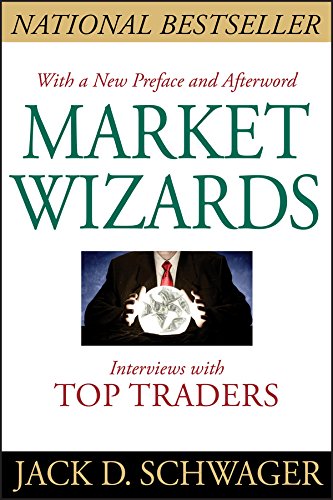 As you may have gathered, investing is not an exact science. There is no simple formula that all investors follow to build their wealth.
As you may have gathered, investing is not an exact science. There is no simple formula that all investors follow to build their wealth.
In Market Wizards, Jack Schwager interviews many top traders to get their opinions and insights regarding investing.
This is an important book to read for new investors because it sheds light on the wide range of strategies that investors can employ to reach various goals.
Are you investing for rapid growth?
Are you investing for a long-term goal like retirement?
Most importantly, Market Wizards allows readers to tap into many great minds at once rather than just one. Through compelling interviews, Jack Schwager brings complex investing topics to the masses, which is why his book makes our list of the best investing books.
11. The Only Investment Guide You’ll Ever Need by Andrew Tobias (Bonus)
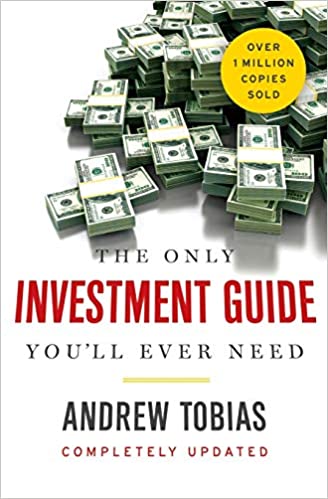 The title of this book is bold, considering the incredible investing books we have listed already. However, there are so many tips packed into this book by Andrew Tobias that you will certainly be able to gain a solid understanding of investing by reading it cover to cover.
The title of this book is bold, considering the incredible investing books we have listed already. However, there are so many tips packed into this book by Andrew Tobias that you will certainly be able to gain a solid understanding of investing by reading it cover to cover.
Even if you only have a small amount of money to invest, this guide can help you make the most of your investment to build a strong financial future.
Best of all, Andrew Tobias takes complex investing topics and explains them with humor in a way that even the most beginner investors can understand.
Perhaps the most important aspect of this book is how the concept of personal finance and saving is tied into investing.
The author clearly explains how the two ideas tie together. Without savings, you cannot invest, and this book should help you better grasp both.
How to Choose Which Books to Read
Because there are so many books for new investors, it can be hard to settle on one to start. Fortunately, you can consider a few factors to help your decision.
Then, you can avoid pushing off your investing plans. Instead, you can get started with strategies to help meet your goals.
Your background
First, you need to consider your current or past financial situation. If you grew up in a wealthy family, you might have more investing experience than someone from a working-class family.
You should also consider your current status. Whether you’re in school, working full-time, or own a business, that can affect how you may want to invest.
If you don’t have much money to invest, you may want to start with dividends. Or you may decide you need to learn about other financial topics along with investing.
However, if you have a lot of money, you may decide to invest in real estate. Then, you can turn the investment into profit.
Your interests
You also have to consider what interests you about investing. In some cases, you may know of the perfect index fund or property for your next investment.
However, you may need to compare a few investment options. That way, you can figure out which is the most interesting or applicable to you.
If you don’t know what type of investing you want to do, you can read a couple of books. Choose books from different areas of investing so that you can get a better idea of each.
Your priorities
Along with your interests, consider your financial goals and priorities. If you want to quit your job and rely on passive income, it can take time to achieve that.
However, if your goal is to save for your regular retirement, you can start saving more easily. It will still take years to reach your goal, but you may not need to save or invest as much.
You also should consider how much time you have to dedicate to your investments. If you don’t want to maintain a house, real estate investing probably isn’t the best option.
Diversify
After you read a couple of books for new investors, keep reading more. Find books on different investing topics so that you can diversify your knowledge and then your portfolio.
Once you start making money from dividends, you may decide to put some of it into a rental property. Or maybe you decide to invest in different mutual funds.
If you want to rely on your investments for financial freedom, you need to diversify. While some strategies can offer better returns than average, you never know when one option will fail.
Conclusion
This list of the best investing books is a great place for any investor to create their own personal reading list. Some books dive deep into specific investment topics while others loop in personal finance subjects as well.
Find some of the books on this list that grab your attention and begin soaking in the wealth of knowledge these books contain. If nothing else, you will come out a more confident investor.
Of course, you never want to stop learning.
These books are just a starting point. As you dive deeper into investing, you will discover new books that capture your attention. Always strive to learn more about investing while remembering the basics of successful investors.
With all of that knowledge working for you, investing will seem much less daunting and, perhaps, even downright exciting.



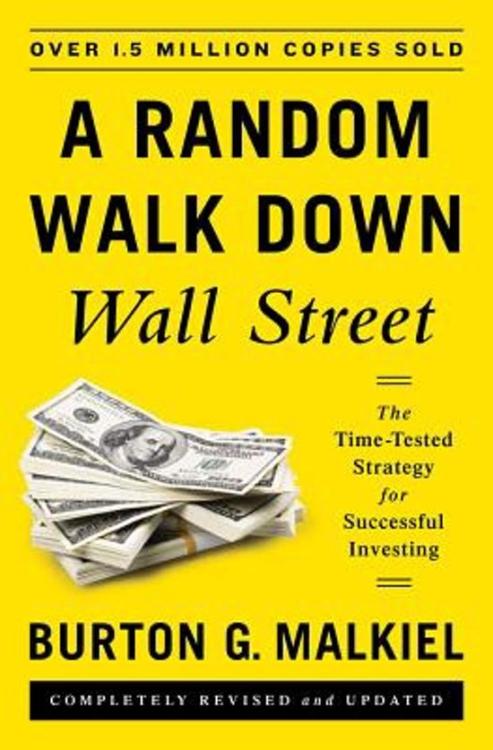




Recommended Comments
There are no comments to display.